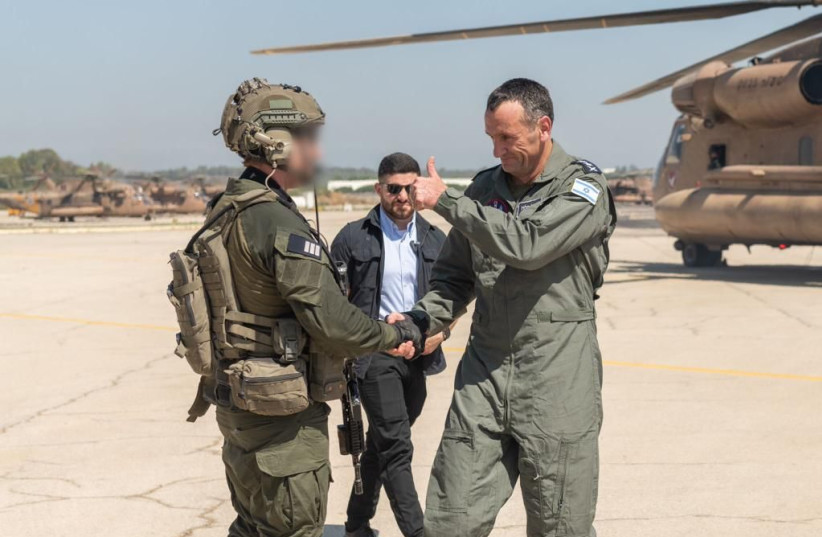Prime Minister Benjamin Netanyahu did not meet with IDF Chief of Staff Lt.-Gen. Herzi Halevi prior to the Knesset vote repealing the judiciary’s reasonableness standard on Monday, despite a request by the IDF.
The Netanyahu narrative was that the meeting was not feasible simply for technical scheduling reasons, a source with knowledge about the matter said.
The IDF would not publicly comment on the issue.
Earlier Monday, however, Netanyahu and Defense Minister Yoav Gallant said they had asked the IDF to brief the cabinet on the evolving status of the readiness of the IDF in the shadow of the debate over the government’s repeal of the reasonableness standard.
That decision also came after opposition leader Yair Lapid and National Unity chairman Benny Gantz each received briefings from either Halevi or Shin Bet (Israel Security Agency) Director Ronen Bar.

Late Monday night, the IDF said Halevi did meet with Netanyahu hours after the vote, despite Netanyahu being unavailable to meet with him before the vote.
Halevi had presented Netanyahu with the latest statistics and trends regarding reservists quitting and the military’s readiness, the IDF said in a statement.
Halevi said political officials must stop attacking the defense establishment because they were undermining its readiness and cohesion.
Despite all of the current challenges, Halevi said the IDF would do its utmost to maintain readiness and cohesion to continue defending the country.
Some speculated that Netanyahu had avoided the Halevi briefing so that he would not be pressured into postponing the vote by a harrowing prediction about its impact on IDF readiness.
The timing of the briefings and the intentional public announcements had suggested that major moves might be on the horizon regarding the government’s policy – in no small part due to concerns about harm to the IDF’s readiness.
Yet, given that the vote passed, the last-minute briefings could simply have been ensuring that all key parties to the relevant political issues would have a balanced nonpolitical clear understanding of where the IDF stood.
More than 10,000 IDF reservists, including 1,194 from the IAF and 1,855 from the IDF Intelligence Corps, had announced they were quitting their reserve roles to protest government policy, and even more were expected to quit now that the law has passed.
The NGO Brothers in Arms said the number of reservists quitting was expected to balloon.
Despite the rising number of reservists who are quitting, former IDF chiefs of staff Shaul Mofaz, Gabi Ashkenazi, Gadi Eisenkot, and Benny Gantz all oppose both government policy and the idea of reservists quitting.
Meanwhile, on Monday, there were reports that a critical mass of Mossad officials had demanded a dialogue with Mossad Director David Barnea over government policy.
Former Mossad directors critique Netanyahu
All of the six living former Mossad directors had either explicitly opposed the reasonableness standard repeal or called for a pause to arrive at a compromise.
Five out of the six had blamed Netanyahu for tearing apart the nation, while Yossi Cohen said the vote must be paused to give more time for dialogue.
